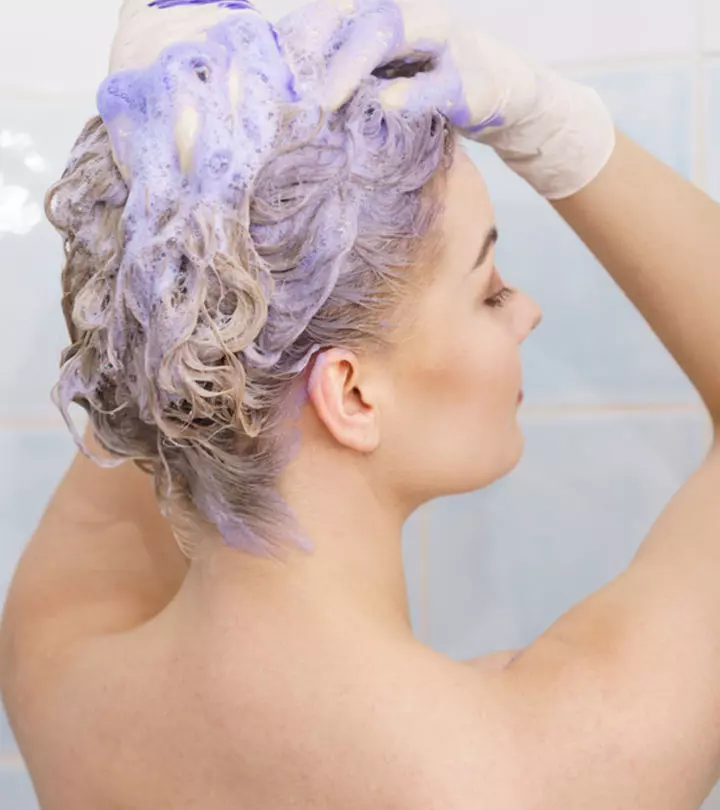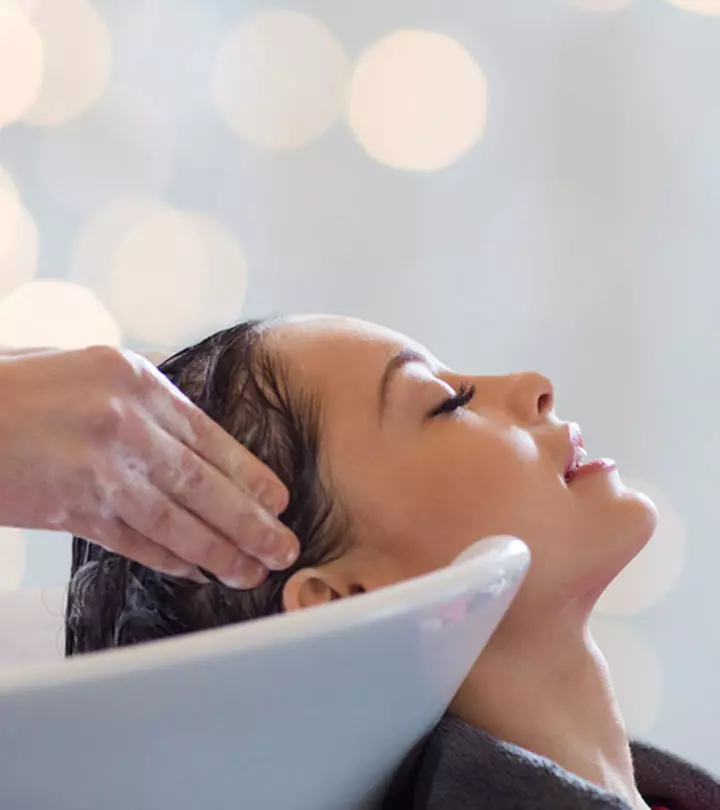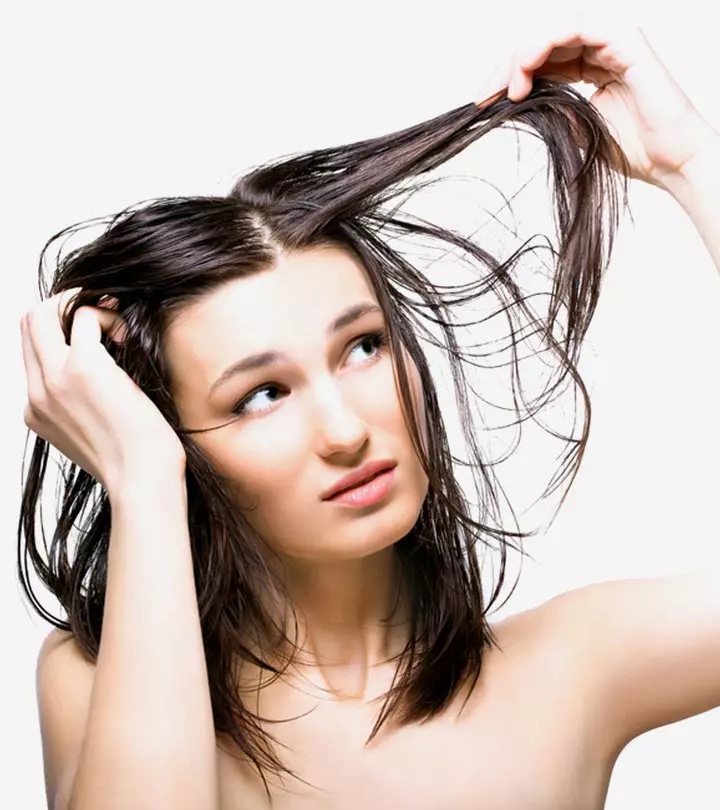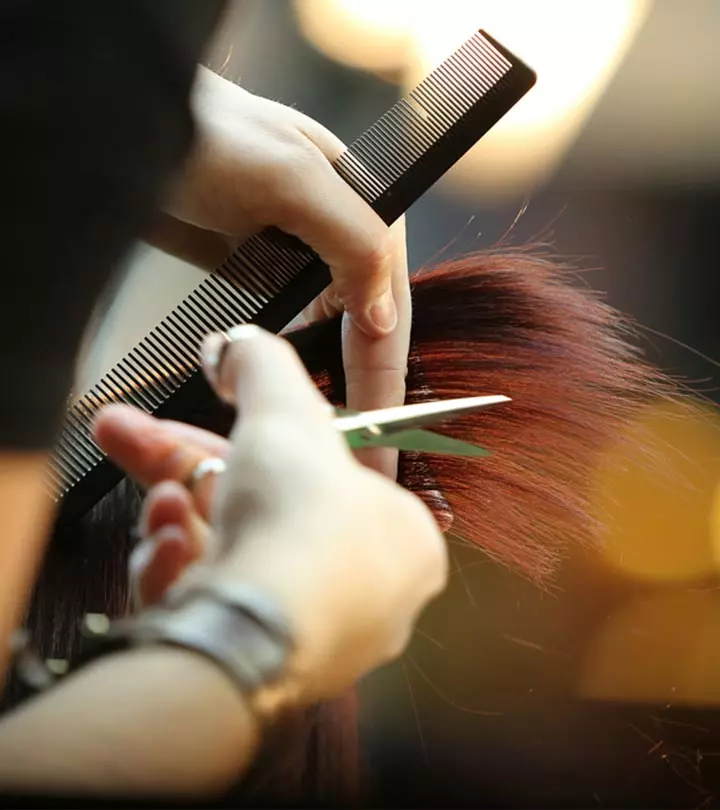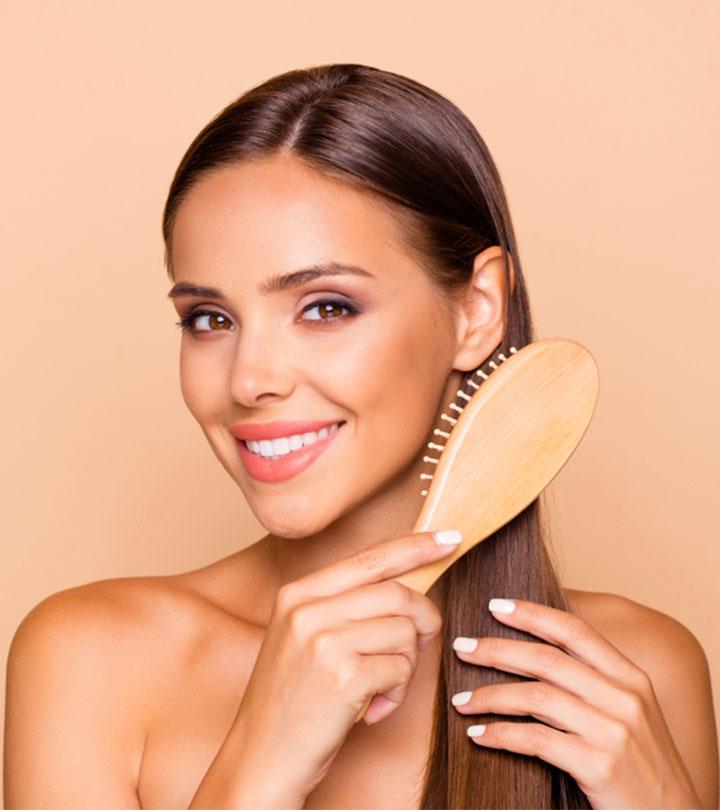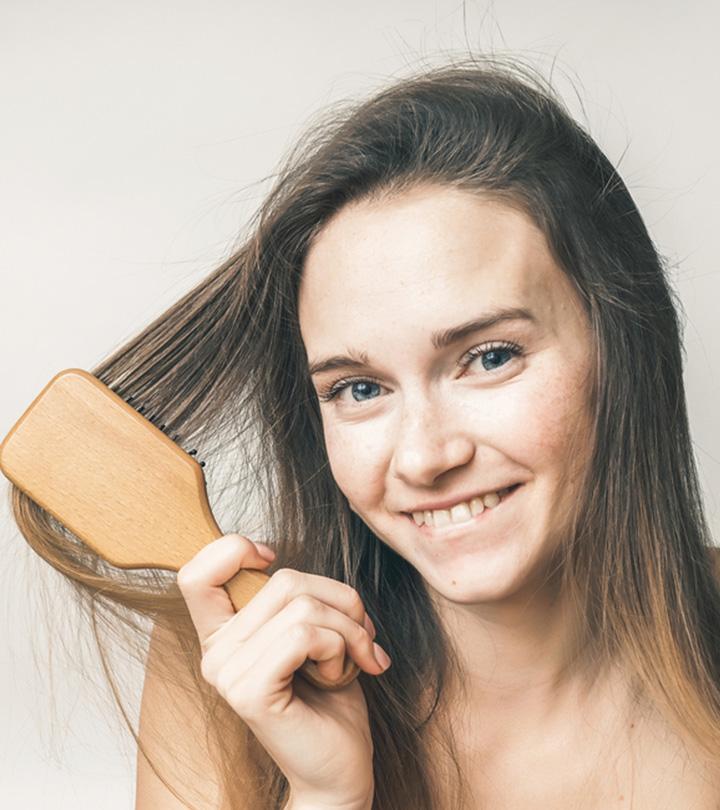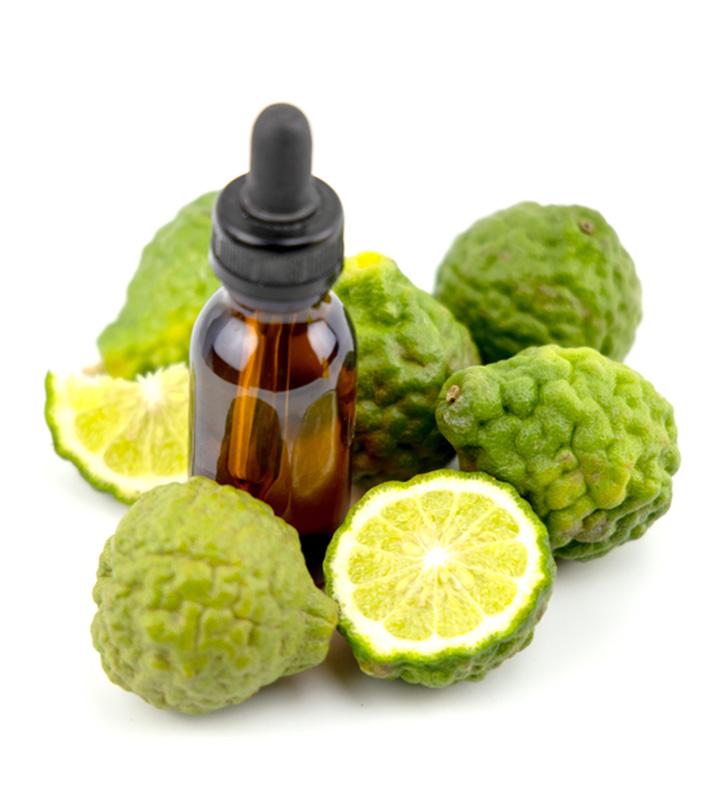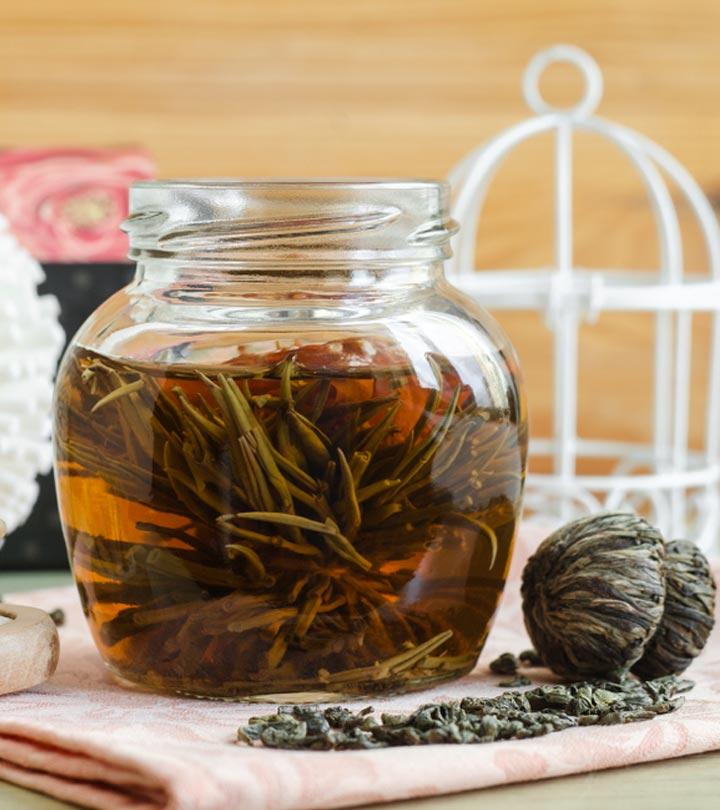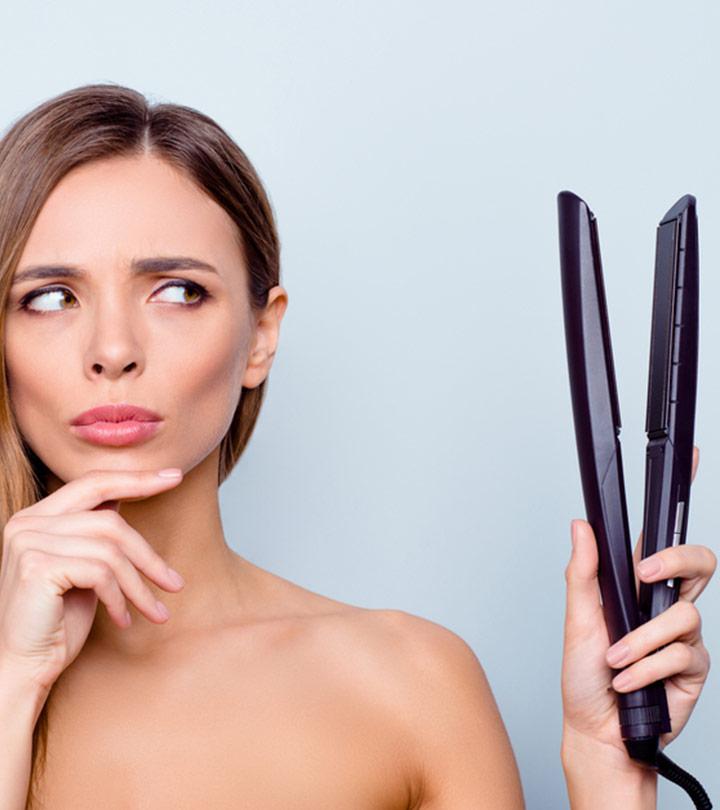How Often Should You Wash Your Hair?
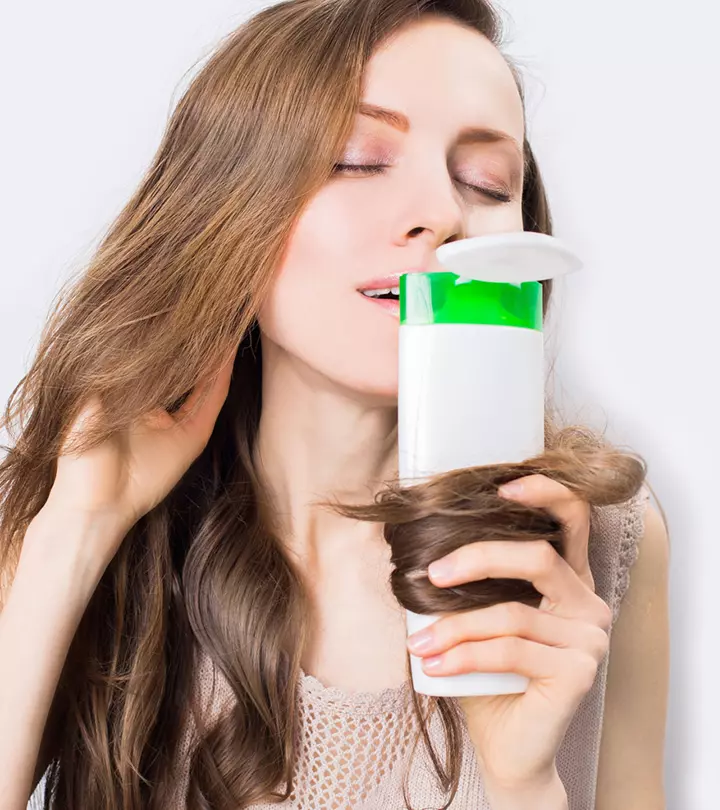
There is no universal rule for the hair washing frequency. It differs for all hair and scalp types. Some may need to wash their hair every day, while others are fine with a once-a-week routine. Frequent washing can irritate the scalp and dry out your hair, and shampooing too less may cause buildup and other issues. Don’t worry. We will help you set your hair washing routine. Scroll through this article to learn hair washing frequency as per different hair types.
In This Article
Hair Washing Frequency As Per Hair Types
1. Thick Hair
Thick hair can hold on to moisture for long and takes more time to absorb oil. Hence, wash it once a week.
2. Fine Or Thin And Oily Hair
This hair type tends to get oily fast. Moreover, hair styling products can quickly buildup on the scalp, aggravate the greasiness, and flatten the hair. Hence, you can wash it every alternate day. However, ensure to use a conditioner to moisturize the strands.
3. High Porosity Hair
This hair type has gaps between the cuticle layers, meaning it absorbs and loses moisture quickly. You can wash high porosity hair once a week, depending on how oily it gets.
4. Low Porosity Hair
Low porosity hair does not absorb moisture quickly, so saturating it while washing is tough. Moreover, the hair products tend to stay on the surface and cause buildup. Wash it once a week. However, avoid using too many styling products to minimize buildup. Washing low porosity hair frequently may damage it further.
5. Dry And Damaged Hair
The frequency depends on the extent of the damage. Usually, dry and damaged hair should be washed once a week.
The way you wash your hair is as important as the hair washing frequency and is more than just cleaning your scalp and hair. Scroll down to find out whether you are washing it the right way or not.
Tips To Wash Your Hair Like A Pro
1. Rinse Your Hair With Warm Water
Before shampooing, saturate your hair with lukewarm water. The shampoo lathers well in thoroughly wet hair and is easier to spread. Moreover, you will need less shampoo if your hair is wet. Lukewarm water helps open up the hair cuticles, allowing the products and moisture to penetrate deeper.
2. Dilute The Shampoo With Water
We tend to use shampoos directly on our scalp. Avoid this and mix it with water and then apply. This way, you can ensure even application and less product wastage. Too much shampoo can dry out the hair.
3. Massage The Scalp
When shampooing, the focus should be on the scalp and not your hair. The scalp contains all the dirt and grease, and rinsing your hair ends with shampoo can cause further dryness. Lather from the roots, gently massage the scalp and then move on to the hair ends.
4. Do Not Use Your Nails
Scrubbing the scalp with your nails causes friction, scratches, and infections and may damage the hair follicles. Use your fingertips for massaging your scalp. Also, do not rub back and forth as that may cause tangles. Follow a circular motion.
5. Rinse And Condition Your Hair
Rinse your hair thoroughly to ensure there is no shampoo residue. Condition your hair from the mid-length to the ends. Never apply a conditioner to the scalp as that will make the roots greasy. Leave the conditioner on for 5-10 minutes (longer the better) and wash off.
You may follow these tips while shampooing your hair. While there is no definite rule for the frequency of hair washing, there are signs that indicate you are washing it way too often.
How To Tell If You Are Over washing Your Hair
- Your Hair Feels Dry And Frizzy: Frequent shampooing affects the hair texture and makes it dry and breakage-prone.
- Your Hair Color Fades Soon: If you recently got your hair dyed and it starts fading in just a few days, you are shampooing too frequently.
- Split Ends: Split ends indicate damaged hair and often result from over washing.
- Flaking Scalp: No, this is not dandruff. Excess shampooing can strip the natural oils, dry up the scalp, and cause flaking.
- Frizzy Hair: Over washing causes loss of moisture and frizz.
If you have noticed any of these signs, it is time to rehaul your hair washing routine. But how do you know when it is time to wash your hair? Find out next.
Know When It Is Time To Wash Your Hair
Watch out for these signs:
- Your Hair Feels Oily And Flat: This happens when your scalp has excess oil and grease buildup. Your hair feels weighed down and starts shedding.
- Your Hair Smells Odd: Excess grease and dirt buildup cause an unpleasant odor. The moment you feel your hair doesn’t smell fresh, it’s time to cleanse.
- The Texture Has Changed: You can feel when your hair texture is “off.” It may feel straighter, flat, or stringier.
- It Gets Tangled Easily: Buildup and grease cause tangles. The moment your hair starts to develop more knots and tangles than usual, understand it’s time to grab the shampoo bottle.
Frequent washing may not suit all hair types. However, there are situations when you may need to wash your hair frequently.
Who Should Shampoo Daily?
1. You Have An Extremely Oily Scalp
An oily and greasy scalp attracts dirt and dust and causes buildup. You may need to shampoo daily or every alternate day to maintain your scalp hygiene.
2. You Exercise A Lot
If you are breaking a sweat with intense workouts every day, you may need to shampoo daily. Sweat-drenched hair can damage the hair follicles and promote microbial growth.
3. You Live In A Humid Area
Humidity can cause excess sweating. It is best to go in for a regular mild rinse, especially during summers and the rainy season. This helps avoid bacterial buildup.
On the contrary, some people may go a few days without washing their hair.
Can You Go A Few Days Without Hair Washing?
Yes, you can if:
- You have highly porous hair.
- You have dry and damaged hair.
- You are on medications that reduce sebum production, like Accutane, antiandrogens, or estrogen pills.
- You stay in cold places.
If you are worried about how to keep your hair stay fresh during the in-between days, we have some hacks to help you out. Scroll down.
Tips To Keep Your Hair Fresh During The In-Between Days
1. Use Dry Shampoos
Dry shampoos work by absorbing the oils from your scalp. This way, you can avoid greasy hair and keep it refreshed.
2. Avoid Using Hair Products On The Scalp
Avoid using serums or hairsprays on the scalp and hair roots. Most of these products are thick and leave a residue. Instead, try using a dry conditioner to deal with the mid-week frizz and dullness.
3. Use A Setting Spray
Just got your hair styled from a salon and want to make it last a few days without washing? Use a setting spray to keep it in place. Setting sprays prevent humidity from affecting your strands.
4. Avoid Sweating Unnecessarily
In situations where you cannot wash your hair but need to look fresh for a few days, avoid strenuous activities that may cause sweating. Skip your workout or if in a humid place, stay in air-conditioned areas.
To Conclude
Hair washing frequency depends on multiple factors. The best way is to observe your hair and scalp and see how they behave. You will find endless lists of dos and don’ts and hair hacks, but all may not be suitable for your hair. The best way is to listen to your hair. Look out for signs that we have shared in the article, and based on your observations, determine your hair washing routine. This will help you maintain optimal hair health.
Recommended Articles:
- 6 Simple Steps To Wash Your Hair With Shampoo
- Best Hair Wash Tips – Our Top 10
- 7 Shower Tricks To Keep Your Hair Healthy
- Daily Hair Care Routine For All Hair Types


